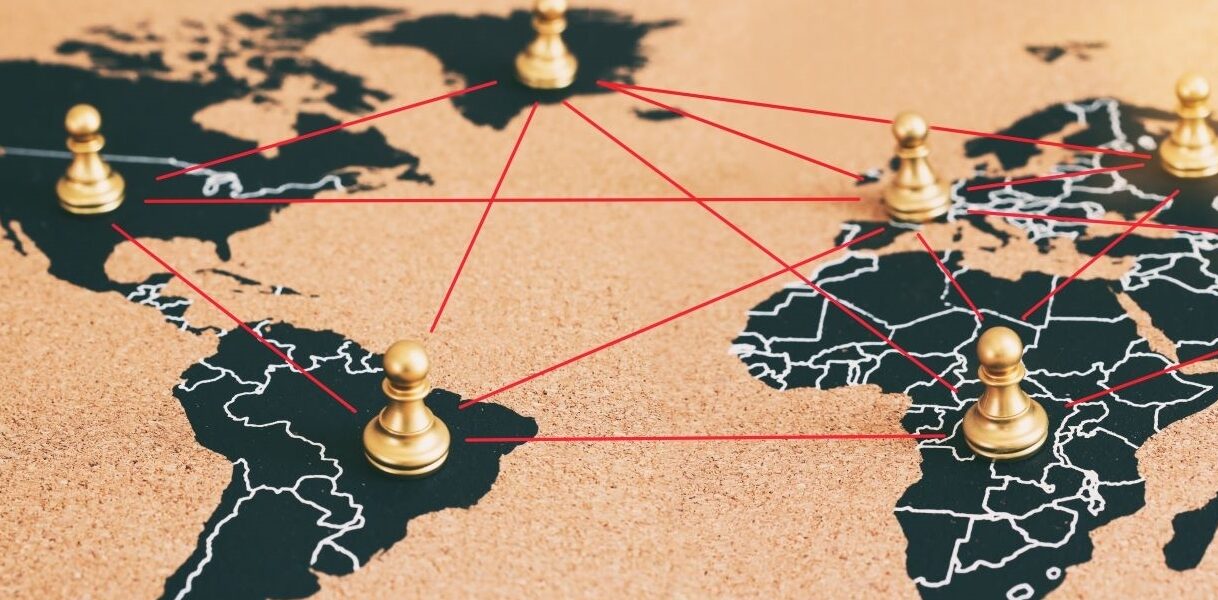Blockchain disruption geopolitical risks to rising U.S.-China trade tensions, Cardano founder Charles Hoskinson, co-founder of Ethereum, offered a sobering warning at Paris Blockchain Week, encouraging the worldwide blockchain sector to hasten regulatory and technological changes. Hoskinson pointed out that proposed 60% tariffs on Chinese imports by former President Donald Trump could cause supply chains to be disrupted, world markets to be fractured, and blockchain reliance on centralized infrastructure to be revealed. His exhortation to action underlined the need for distributed solutions to reduce geopolitical concerns and protect the sector’s future.
The address came at a time of mounting concern about blockchain weaknesses and geopolitical shocks. At the same time, China’s retaliatory export restrictions threaten access to rare earth minerals essential in blockchain infrastructure, as recently as the US. Penalties on Chinese tech companies have upset semiconductor supplies vital for mining hardware. Hoskinson cautioned that the sector will likely be collateral damage without structural improvements in a larger economic struggle.
Blockchain Faces Disruption
Hoskinson described how Trump’s suggested tariffs would destroy blockchain ecosystems. China produces over 60% of semiconductor components and over 70% of mining ASICs. A 60% tariff would raise hardware prices, making small-scale mining operations unviable and centralizing control among well-funded companies. This runs against the decentralizing philosophy of blockchains.
He also pointed out dangers to distributed finance (DeFi). If trade wars limit money flows, cross-border stablecoin transactions—which depend on smooth fiat conversions—may experience liquidity shortages. For instance, China’s possible reprisal against the U.S. currency might destabilize USD-pegged stablecoins such as USDT and USDC, whose daily volume handles $50 billion.
Geopolitics Hits Blockchain
Blockchain disruption geopolitical risks: Architecture depends on centralized systems, even if they have distributed principles. With 65% of nodes worldwide housed on cloud services (AWS, Alibaba Cloud), hardware, software, and energy supply chain constraints, networks are even more subject to geopolitical whims. Hoskinson recently disrupted Solana and Polygon by suspending Russian nodes following the invasion of Ukraine.

China’s Export Curbs for Rare Earth Materials 2024 Neodymium, used in server magnets, increased 300%, hence ballooning data center expenses. Decentralization is a myth if your stack isn’t sovereign,” he said, pushing projects to diversify supply chains and embrace open-source, location-agnathetic protocols.
Mining Under Siege
Already stressing semiconductor supply, the U.S.-China tech conflict has Huawei’s 2023 breakthrough in 5nm chips set offUS. Export restrictions on advanced lithography machines are postponing next-generation ASIC manufacturing. Bitcoin miners who change hardware every two to three years experience delays and higher pricing. Hoskinson cautioned that proof-of-work (PoW) chains like Bitcoin could become unsafe without ASIC innovation.
Nations in competition could weaponize chip shortages: “Imagine a 51% attack sponsored by a state actor hoarding mining rigs.” While Hoskinson acknowledged PoS isn’t immune, Cardano’s proof-of-stake (PoS) methodology avoids hardware dependency. Validators still depend on centralized cloud providers and internet backbones managed by geopolitical rivals.
Four-Pillar Blockchain Reform
Hoskinson proposed a four-pillar reform: Decentralized network architecture and community-funded ASIC manufacturing using DAUs to lower regional reliance. Alternatives for Open-Source Cloud Platform Reward distributed cloud storage (such as Filecoin, Arweave) for node hosting. Interoperability guidelines: Cross-chain systems help to stop network fragmentation during localized outages. Decentralized Identity (DID) moves control from governments to consumers.
Drawing on the EEU’sDigital Euro Act as a model, he also advised campaigning for blockchain exemption in trade laws. Responses were mixed. Though he questioned the viability of distributed hardware, Ethereum’s Vitalik proved Hoskinson’s emphasis: “Manufacturing isn’t software, or a manufactured good.
Global Reactions Split
Chinese blockchain companies objected to the speech as alarmist. “”hina will support blockchain innovation regardless of trade policies,”” said Neo Global Development CEO John Wang. Marathon Digital, a US mining behemoth, brushed off worries, asserting that its Texas operations run locally supplied rigs. While applauding the DID effort, privacy activists cautioned against politicizing procedures. “
Blockchain disruption geopolitical risks should exist beyond borders,” lead creator Riccardo Spagni of Monero remarked. Hoskinson’s warning about nationalism comes from the Digital Markets Act of the European Union, and India’s blockchain localization rules point toward regionalized tech stacks. Cardano’s collaborations with African countries, such as Ethiopia’s digital ID system, showcase efforts toward geopolitically neutral ecosystems.
Conclusion
The address given by Charles Hoskinson at Paris Blockchain Week acts as a wake-up call for a sector at a turning point. The impending trade war between the United States and China highlights the brittle reliance of blockchain on geopolitically unstable supply chains and centralized infrastructure. Though his ideas—decentralized hardware, open-source cloud alternatives, and interoperable protocols—offer a road to resilience, implementation calls for unprecedented cooperation among developers, governments, and regulators.
The Blockchain disruption geopolitical risks. In a time of economic fragmentation, distributed systems could either heal divisions or split even more. HHoskiHHoskinson’s alert is ambiguous: the sector has to change or face irrelevance. The decision between sovereignty and solidarity will define blockchain’s place in the worldwide order as trade conflicts intensify.




